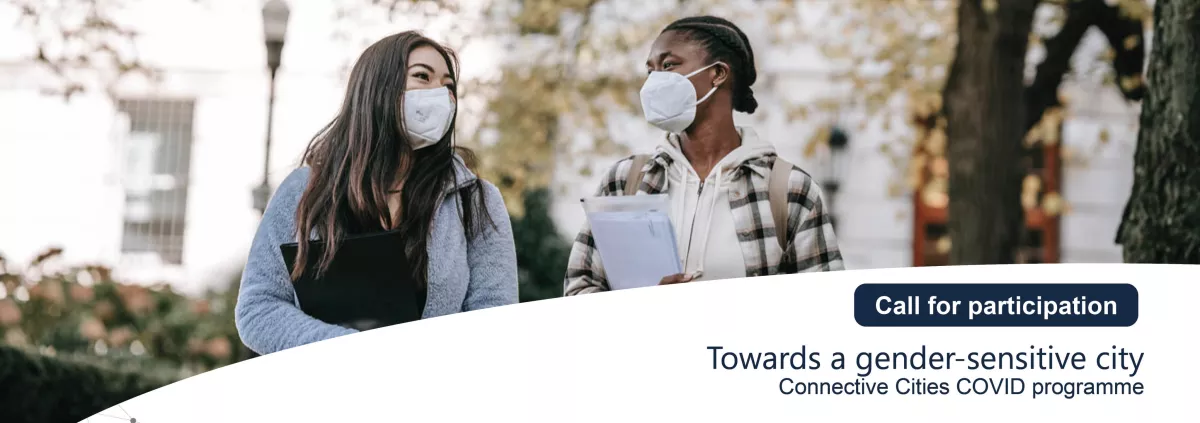Appel à participation en Français
Convocatoria de Participación en Español
Open call for participation
Towards a gender-sensitive city
Are you an urban representative, employee of a municipality or an urban practitioner from a NGO, university, research unity, or other working directly with cities administrations outside the EU? Do you want to work towards a gender-sensitive city?
Join our working groups and benefit from:
- Peer-to-peer consultation
- International good practices from Vienna, Barcelona and other cities
- Work on your project idea/challenge
- Min. 4 meetings with international peers starting from 30/09/2021
- On-demand international advisory
Without a gender-sensitive approach to urban development in the post-COVID era, the pandemic could have far-reaching effects including the risk of widening gender inequalities in cities worldwide. At the same time gender mainstreaming tools and good practices of gender-sensitive recovery strategies already exist, which, if used effectively, can mitigate the negative impacts of COVID-19 and contribute to an increased gender equality in urban development.
- Join the working group: Gender-sensitive urban planning and development
Urban planning and development are never gender-neutral. One's own everyday experiences determine - often unconsciously - the way urban practitioners plan and develop a city. Especially in regions where urban planning and development are male-dominated and the needs of a stereotypical working man still set the standard, the everyday patterns of more than half the population are often excluded from consideration. Yet different users - women and men, girls, and boys - use and experience the city differently. First meeting: 30/09/2021.
- Join the working group: Gender-responsive urban mobility
Mobility behaviour is strongly influenced by gender roles. Caregivers, of which up to 75% are women worldwide, generally make several stops a day to meet household needs and are more likely to walk or use public transport. Remote neighbourhoods and poorly lit streets contribute to some groups feeling uncomfortable in public spaces, and particularly women avoid certain streets, neighbourhoods, or parks after dark. To ensure more gender equity in mobility, transport planners need to understand women’s travel behaviour and mobility needs better and more accurately - and incorporate them into their planning decisions. First meeting: 30/09/2021.
- Join the working group: Urban approaches combating domestic violence
It is a common phenomenon that domestic violence increases whenever couples or families spend intensive time together. However, the restrictions imposed to prevent the spread of the Corona virus have greatly exacerbated the problem of domestic violence. Various hotlines were consulted excessively, and reports of violence were filed. Governments were faced with the challenge of responding quickly and with adapted measures. First meeting: 30/09/2021.
Contact: franziska.loibl@giz.de
Connective Cities, Covid-19 Programme, Gender Cluster
